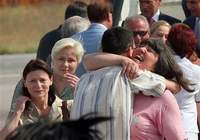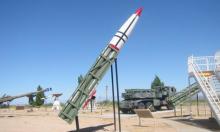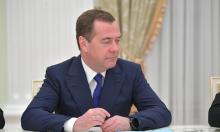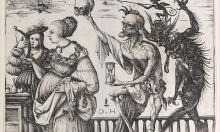Europe smiles to Libya after liberation of Bulgarian medics
Six medics were greeted with tears and happiness in their native land, Bulgaria, after spending almost a decade in jail over widely rejected accusations they deliberately infected children with HIV.

Behind the dramatic release Tuesday of five Bulgarian nurses and a Palestinian doctor were secretive negotiations with the French president's wife as a key protagonist.
But questions remain about what concessions were made to Moammar Gadhafi's regime - with reports emerging from Tripoli that a charity created to compensate the infected children and their families saw its funds jump 100-fold to US$400 million through European contributions.
Libya had accused the six of deliberately infecting more than 400 Libyan children with HIV; 50 of the children died. The medics, jailed since 1999 with most of those years passed under a death sentence, deny knowingly infecting the children and say their confessions were extracted under torture.
The six were whisked from Tripoli to Sofia aboard France's presidential jet Tuesday, their release secured during a three-day trip to Libya by French first lady Cecilia Sarkozy and the European Union's commissioner for foreign affairs, Benita Ferrero-Waldner.
The medics came down the steps from the airplane and were welcomed on the tarmac by family members who hugged them, one lifting the Palestinian doctor, Ashraf al-Hazouz, off the ground. Bulgaria granted him citizenship last month. The six were immediately granted a presidential pardon.
"I waited so long for this moment," nurse Snezhana Dimitrova said before falling in the arms of her loved ones.
The French first lady, after a broad wave to cameras as she stepped off the plane in Sofia, said she had "not slept for 45 hours."
Her husband, President Nicolas Sarkozy, said neither his country nor the EU paid money for the medics' release. But within hours, the European Union - which Bulgaria joined in January - was offering Libya improved economic and political ties potentially worth billions of dollars (euros).
Details of the deal to release the medics are still sketchy, and it was unclear just how significant a role was played by France.
Sarkozy, who came to power in May, had mentioned the medics in his election campaign. He later said their plight had moved him to push for their release.
But some said Paris' role was being overblown.
"If we put things into a global perspective, we were already in a situation that was favorable to the liberation of the hostages," said Barah Mikail, a Middle East expert at the French Institute of International and Strategic Relations, or IRIS.
Qatar also mediated in the negotiations, the French president said, but few details emerged on the Middle Eastern country's role.
In Tripoli, Libyan officials said European countries have promised millions of dollars to a fund created to compensate families of the infected children.
Libya and the EU agreed to develop a "full partnership," Libyan Foreign Minister Abdul-Rahman Shalqam said, with the Europeans promising a package of aid to develop Libyan hospitals and other infrastructure. Shalqam, who did not reveal how much aid the EU would provide, also said Bulgarian President Georgi Parvanov had the right to pardon the medics.
Under the agreement signed with Ferrero-Waldner, the EU promised to provide "lifelong treatment" to the infected children as well as aid to "improve the Benghazi Hospital" where the children were infected, Shalqam said.
Libya's decision to allow the six to return to Bulgaria - nominally to serve out the rest of their life sentences - came after months of pressure from the United States and the EU making clear to Gadhafi that resolving the issue was key to normalizing relations, a key Libyan goal.
U.S. President George W. Bush's counterterrorism adviser, Frances Fragos Townsend, met with Gadhafi on July 10 and conveyed the "importance of resolving outstanding issues," including that of the medics, Gordon Johndroe, a spokesman for the National Security Council, said at the time.
The following day, Bush took a step in restoring normal diplomatic relations by nominating an ambassador to Tripoli, where the U.S. reopened its embassy in May 2006.
While the politicians and diplomats negotiated behind the scenes, the medics said they endured torture and rape - abuses under which they gave confessions. Their death sentence was only commuted to life in prison a week ago.
One of the nurses, 41-year-old Nasya Nenova, testified she tried to commit suicide out of fear of further torture.
Another, Kristiana Valcheva, has said she "was tortured with electric shocks, beaten and submitted to every kind of torture known since the Middle Ages."
The five nurses - all mothers - traveled to Libya nearly a decade ago, attracted by promises of higher paying jobs. They were sent through a Bulgarian recruitment agency to al-Fath Children's Hospital in Libya's second-largest city of Benghazi. The nurses were arrested the year after their arrival.
Human Rights Watch, which interviewed the medics in jail in May 2005, said that four of them recounted how interrogators subjected them to electric shocks and beatings.
The medics were taken to a government residence where they will spend the next few days with their relatives.
Subscribe to Pravda.Ru Telegram channel, Facebook, RSS!





